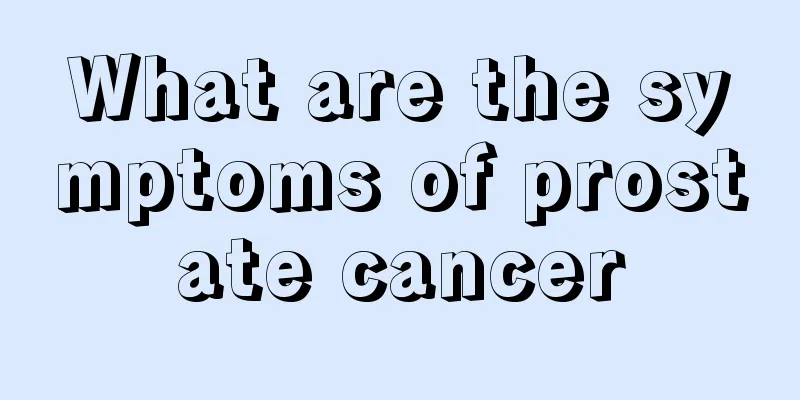What are the symptoms of prostate cancer

|
The symptoms of prostate cancer are generally not obvious, or even if they occur, they are easily ignored by patients. It is recommended to learn about this disease because it is the most common malignant tumor disease in life today, so be vigilant. The following is a summary of the symptoms of prostate cancer: Symptoms of prostate cancer: systemic symptoms Because prostate cancer patients will experience some systemic symptoms, such as pain, long-term pain will affect the patient's diet, sleep and spirit, making the patient's overall condition gradually weak, followed by weight loss and fatigue, progressive anemia, and eventually develop cachexia or renal failure. Prostate cancer symptom 2: urination disorder Dysuria is one of the common symptoms of prostate cancer patients. About 80% of patients will experience progressive dysuria, thinning of urine flow or deviated urine flow. Some patients will experience bifurcated urine flow, prolonged urination, frequent urination, urgency, pain when urinating, and a feeling of incomplete urination. In severe cases, urine dripping and urine retention may occur. Only 3% of patients have hematuria. Prostate cancer symptom 3: pain Clinically, about 31% of prostate cancer patients experience pain. The pain is most common in the waist, sacrum, buttocks, and hips. Pelvic and sciatica pain are common and severe and unbearable. It may be caused by cancer metastasis to the bones or invasion of nerves or hydronephrosis and kidney infection. Symptoms of prostate cancer 4: Metastasis symptoms In the late stage of prostate cancer, patients will also experience some symptoms of metastatic cancer due to the metastasis of the tumor. About 1/3 or even 2/3 of patients have lymph node metastasis when they first see a doctor, mostly in the iliac, iliac, waist, groin and other parts. It can cause enlarged lymph nodes in the corresponding parts and swelling of the lower limbs. Hematogenous metastasis is more common in bones (such as pelvis, sacrum, lumbar spine, upper femur, etc.) and internal organs (such as lungs, liver, brain, adrenal glands, testicles, etc.). There is no doubt that the symptoms of advanced prostate cancer are relatively obvious, but advanced prostate cancer is generally unable to be completely cured. In addition, because there is a relatively obvious high-incidence group for prostate cancer, this group of people should pay attention to the prevention of prostate cancer. |
<<: How to care for prostate cancer patients after prostatectomy and what to eat after surgery
>>: What are the prevention methods for prostate cancer
Recommend
What to do if you have a sore throat after chemotherapy
For patients with different types of cancer, alth...
What are the early symptoms of cervical cancer? What are the early manifestations of cervical cancer?
What are the early symptoms of cervical cancer? C...
Can I eat coix seed if I have excessive stomach fire?
I don’t know if you know what stomach fire means....
Tips for repairing sunburned skin, 5 ways to “save your skin”
It is easy to get sunburned in the hot summer, an...
Are anal fissures and anal bleeding also divided into stages? What are the types of anal fissures?
The anus is an important part of the body. It con...
Slapping the head made black hair come out
There are many benefits to gently patting the hea...
Will pregnant women gain weight if they eat sweet potatoes?
Sweet potatoes have many benefits to the human bo...
Chinese medicine treatment of pancreatic cancer patients should pay attention to the following points
Traditional Chinese medicine is one of the treatm...
Which hospital is good for treating esophageal cancer
The occurrence of esophageal cancer seriously thr...
Chest tightness may also be an early symptom of cardia cancer
The early symptoms of cardia cancer are generally...
What is the difference between an arm and an arm?
People often do a lot of things with their hands....
Urinary diversion methods suitable for bladder cancer patients
Bladder cancer is a common malignant tumor of the...
How to use gargle correctly?
Oral health is an issue that people attach great i...
Experts talk about medication tips for tongue cancer
As a common disease of ENT tumors, the medication...
Can I exercise if I have gallstones?
Everyone knows that after suffering from gallston...









